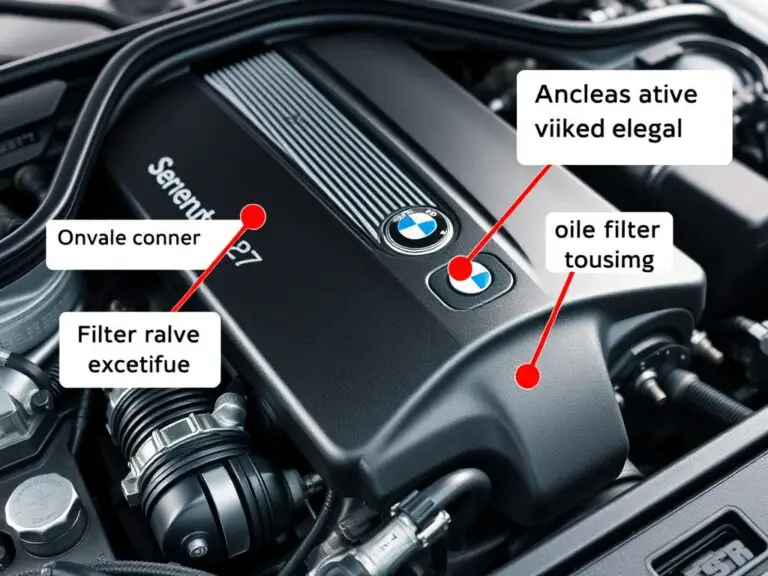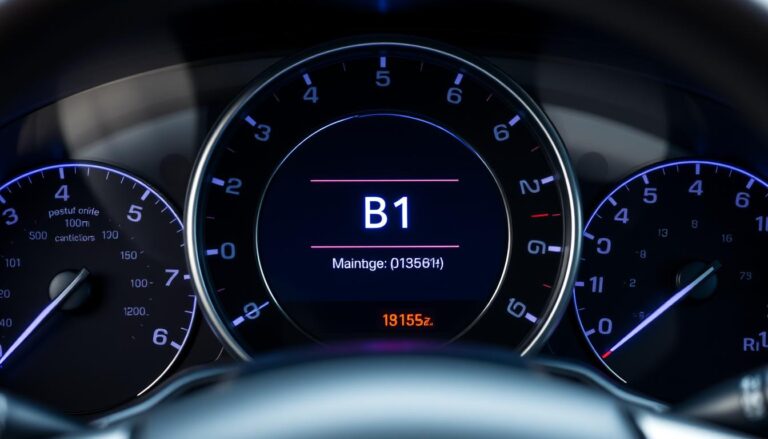Dealing with an oil leak in your BMW? The culprit might be a failing oil pan gasket. This critical component seals the connection between your engine block and oil pan, preventing oil from leaking out. When it fails, repair becomes necessary—but how much will it cost?
This guide breaks down BMW oil pan gasket replacement costs for 2025, helping you understand what to expect and how to potentially save money on this essential repair.
Average BMW Oil Pan Gasket Replacement Cost
The average cost for BMW oil pan gasket replacement typically ranges between $800 and $1,500. This price includes both parts and labor, with the breakdown usually falling into these categories:
| Cost Component | Price Range | Percentage of Total |
| OEM Gasket Parts | $150-$200 | 15-20% |
| Labor | $650-$1,300 | 80-85% |
| Oil Replacement | $50-$100 | 5-10% |
The high labor cost reflects the complexity of the job. Replacing an oil pan gasket often requires removing multiple components to access the pan, which is time-consuming and requires specialized knowledge of BMW engines.
Factors Affecting BMW Oil Pan Gasket Replacement Cost

BMW Model and Year
The cost varies significantly depending on your BMW model and year. Here’s a comparison of average costs across popular BMW models:
| BMW Model | Average Cost Range | Labor Hours |
| 3 Series (2012-2016) | $550-$770 | 4-6 |
| 3 Series (2007-2011) | $1,050-$1,490 | 7-9 |
| 5 Series | $1,150-$1,640 | 8-10 |
| X5 | $1,480-$2,110 | 9-12 |
| X3 | $1,030-$1,470 | 7-9 |
Regional Labor Rates
Labor costs vary significantly by location. Here’s how regional differences affect your total expense:
United States Regional Rates
- Northeast: $130-$180 per hour
- West Coast: $120-$170 per hour
- Midwest: $100-$140 per hour
- South: $90-$130 per hour
European Regional Rates
- Germany: €110-€160 per hour
- UK: £90-£140 per hour
- France: €100-€140 per hour
- Italy: €90-€130 per hour
OEM vs. Aftermarket Gasket Prices

OEM Gaskets ($150-$200)
- Perfect fit guaranteed
- Higher quality materials
- Longer lifespan (typically 5-7 years)
- Maintains warranty compliance
Aftermarket Gaskets ($50-$120)
- Significant cost savings
- Variable quality between brands
- May require more frequent replacement
- Potential fitment issues with some models
The decision between OEM and aftermarket parts can impact both immediate costs and long-term reliability. While aftermarket options offer savings, they may not provide the same durability as genuine BMW parts.
Compare Repair Costs in Your Area
Get quotes from both dealerships and independent BMW specialists to find the best price for your specific model.
Symptoms of a Failing BMW Oil Pan Gasket

Recognizing the signs of a failing oil pan gasket early can help prevent more serious engine damage. Here are the most common symptoms to watch for:
Visible Oil Leaks
The most obvious sign is oil pooling underneath your BMW, particularly after it’s been parked overnight. The leak typically appears directly under the engine area.
Burning Oil Smell
If oil is leaking onto hot engine components or the exhaust system, you’ll notice a distinct burning oil smell, especially after driving.
Low Oil Level Warnings
Frequent low oil level warnings on your dashboard may indicate a leak. This requires immediate attention to prevent engine damage.
Engine Smoke
Oil dripping onto hot engine parts can create visible smoke from the engine bay, particularly after the engine has been running for some time.
Oil-Soaked Undercarriage
Inspection of your BMW’s undercarriage may reveal oil residue around the oil pan area, indicating a slow leak that hasn’t yet formed puddles.
Engine Performance Issues
In severe cases, significant oil loss can lead to increased engine temperature, reduced performance, and unusual engine noises.
Important: If you notice any of these symptoms, it’s advisable to have your BMW inspected promptly. Continuing to drive with a leaking oil pan gasket can lead to engine oil starvation and potentially catastrophic engine damage.
DIY vs. Professional BMW Oil Pan Gasket Replacement

Considering tackling the oil pan gasket replacement yourself? Here’s a comprehensive comparison to help you decide whether DIY or professional service is right for your situation:
DIY Replacement
- Parts cost: $50-$200 (depending on OEM vs. aftermarket)
- Time investment: 6-10 hours for novices
- Skill level required: Intermediate to advanced
- Potential savings: $650-$1,300 in labor costs
- Warranty: None on workmanship
Professional Service
- Total cost: $800-$1,500 (parts and labor)
- Time investment: 1-2 days without your vehicle
- Skill level required: None (expert handles it)
- Convenience: Drop off and pick up
- Warranty: Typically 12 months/12,000 miles
Required Tools for DIY Replacement

Basic Tools
- Socket set and wrenches
- Torque wrench
- Jack and jack stands
- Oil drain pan
- Gasket scraper
- Brake cleaner
Specialized Tools
- BMW-specific socket sizes
- Engine support bar (for some models)
- Subframe removal tools (X5, 5 Series)
- Sealant applicator
- Torque angle gauge
Risks of Improper Installation
Warning: Improper installation of an oil pan gasket can lead to several serious issues:
- Continued or worsened oil leaks
- Damage to the oil pan or engine block mating surfaces
- Improper torque leading to gasket failure
- Engine damage due to oil starvation
- Cross-threading or breaking bolts in the aluminum block
“The most common DIY mistake is improper cleaning of the mating surfaces. Even tiny particles can create a leak path that defeats the purpose of the new gasket.”
Cost-Saving Tips for BMW Oil Pan Gasket Replacement

While oil pan gasket replacement isn’t cheap, there are several strategies to reduce your overall costs without compromising quality:
Check Your Warranty Coverage
Before paying out of pocket, verify if your BMW is still covered under any of these warranties:
- Factory Warranty: Newer BMWs (typically under 4 years/50,000 miles) may have powertrain coverage that includes oil leaks
- Extended Warranty: Purchased extended warranties often cover gasket failures
- Certified Pre-Owned (CPO) Warranty: If you purchased a CPO BMW, the extended warranty might cover this repair
- Previous Repair Warranty: If the gasket was replaced recently, it might still be under the repair shop’s warranty
Verify Your Warranty Coverage
Enter your VIN to check if your BMW’s oil pan gasket replacement might be covered under warranty.
Independent Mechanic vs. Dealership

| Service Provider | Average Cost | Pros | Cons |
| BMW Dealership | $1,100-$1,500 | Factory-trained technicians, OEM parts, warranty on repairs | Highest labor rates, longer wait times, less negotiation flexibility |
| Independent BMW Specialist | $800-$1,100 | BMW expertise, competitive rates, often same quality as dealership | Variable quality between shops, may use aftermarket parts |
| General Repair Shop | $600-$900 | Lowest rates, quicker availability | Less BMW-specific experience, may take longer |
| Mobile Mechanic | $700-$1,000 | Convenience of service at your location | Limited equipment, weather-dependent, variable expertise |
Bundle Services for Better Value
Combine your oil pan gasket replacement with other maintenance to save on labor costs:
- Oil Change: Since the oil must be drained anyway, combine with an oil change service
- Timing Chain Cover Gasket: Often accessible during the same repair
- Motor Mounts: If these need replacement, doing it while the engine is supported saves labor
- Front Main Seal: Accessible in many models during oil pan work
- Oil Pump: If your BMW has high mileage, consider replacing the oil pump while the pan is removed
Pro Tip: Ask for a multi-service discount. Many shops will reduce the overall labor charge when combining services that require access to the same area of the vehicle.
Bulk Oil Purchase Savings
Since your BMW will need an oil refill after the gasket replacement:
- Purchase BMW-approved oil in bulk (5+ liters) for significant savings
- Consider subscribing to oil delivery services for additional discounts
- Ask if you can provide your own oil to the repair shop to save on markup
- Look for seasonal oil sales at auto parts retailers
Frequently Asked Questions About BMW Oil Pan Gasket Replacement

How long does a BMW oil pan gasket replacement take?
Professional replacement typically takes 4-12 hours of labor, depending on your BMW model. Newer 3 Series models (2012+) generally require 4-6 hours, while X5 models can take 9-12 hours due to subframe removal requirements. Most shops will keep your vehicle for a full day to ensure proper curing of sealants and testing.
DIY replacements usually take 6-10 hours for those with intermediate mechanical skills, and potentially longer for first-timers.
Can I drive with a leaking oil pan gasket?
While you can technically drive with a minor oil pan gasket leak, it’s not recommended for extended periods. Continuous driving with a leak can lead to:
- Low oil levels that can cause engine damage
- Oil contamination of other components
- Environmental hazards from dripping oil
- Fire risk if oil contacts hot exhaust components
If you must drive with a leak, check your oil level daily and carry extra oil for top-offs. Schedule a repair as soon as possible.
Don’t risk expensive engine damage. Get your leaking oil pan gasket inspected today.
How often should a BMW oil pan gasket be replaced?
BMW oil pan gaskets don’t have a scheduled replacement interval. They’re designed to last 5-7 years or 60,000-100,000 miles under normal conditions. However, several factors can affect longevity:
- Driving conditions (extreme temperatures accelerate deterioration)
- Oil change frequency (regular changes reduce gasket stress)
- Gasket quality (OEM vs. aftermarket)
- Engine heat cycles
Replace the gasket only when it shows signs of leaking rather than as preventative maintenance.
Will using synthetic oil affect my oil pan gasket?
Modern BMW engines are designed for synthetic oils, and today’s synthetic formulations won’t harm properly installed gaskets. However, if you switch from conventional to synthetic oil in an older BMW with high mileage, the synthetic oil’s better cleaning properties might reveal existing leaks that were previously plugged by sludge buildup.
For BMWs manufactured after 2000, synthetic oil is recommended and won’t negatively impact your oil pan gasket.
Can I use a stop-leak product instead of replacing the gasket?
Oil stop-leak additives are not recommended for BMW engines, especially for oil pan gasket leaks. These products work by softening and swelling rubber gaskets, which can:
- Damage other seals and gaskets in the engine
- Provide only a temporary fix at best
- Potentially clog oil passages
- Affect oil viscosity and lubrication properties
BMW specialists unanimously recommend proper gasket replacement rather than chemical fixes. The cost of potential engine damage far outweighs any short-term savings.
Get a proper repair from BMW specialists who won’t compromise your engine’s integrity.
Conclusion: Making the Right Decision for Your BMW

Dealing with a BMW oil pan gasket replacement is a significant maintenance expense, but understanding the costs and options helps you make informed decisions. Whether you choose a dealership, independent specialist, or DIY approach, addressing oil leaks promptly protects your BMW’s engine and prevents more costly repairs down the road.
Remember that labor makes up the majority of the replacement cost, so finding a reputable mechanic with BMW experience offers the best balance of quality and value. Always use quality gaskets—whether OEM or premium aftermarket—and consider bundling the repair with other maintenance to maximize savings.
By recognizing the symptoms early and exploring all your repair options, you can keep your BMW running smoothly without unnecessary expense.

